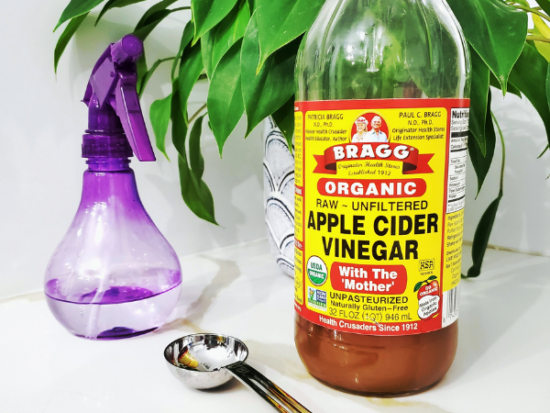Rice vinegar – everything you need to know
From being a favorite for giving off a delicate and sweetish flavor to Asian cuisine to adding floral and exotic flavor, rice vinegar has been used widely for various dishes. As the name implies, it is made from the fermentation of rice.
Many people often get confused between rice wine and vinegar; however, rice wine is just the intermediate product. Production of vinegar, on the contrary, is relatively easy and involves a couple of steps that include the addition of some bacteria.
Among all the other types of vinegar like white wine vinegar, apple cider vinegar, and red wine vinegar available in the market, rice vinegar has its significance. Below we have discussed everything that you need to know about it in a very simplified way.
What is Rice Vinegar?

It’s a kind of vinegar that is made from the fermentation of rice. Since rice has much sugar in starch, this sugar gets converted into alcohol or rice wine. The second step involves the addition of bacteria in the fermentation process, which results in acid formation.
The acid formed during the second step is known as vinegar, and it is not as acidic as other kinds of vinegar-like distilled white vinegar or malts. The vinegar has a milder taste, making it a perfect addition to various salad dressings, sauteed vegetables, and pickles.
Related Articles
Uses for Apple Cider Vinegar
Best Kitchen Products to Buy on Amazon
How to Get Instagram Followers Fast
Does it Expire?
Yes! Many people have this misconception that the vinegar doesn’t get bad at all, which is untrue. Even though rice vinegar, just like every other vinegar, has a self-preserving property which makes it sustain for a longer duration, it does get bad.
The acidic nature of the vinegar can inhibit mold and bacterial growth, which increases its life span; however, it still has a limited storage life as it starts to degrade over time. Deteriorating vinegar starts to produce peroxides which can be a toxic compound for human consumption.
What is the Expiration Duration?
Rice vinegar, just like every other vinegar, does not have any exact shelf life. You must have noticed that most producers make it easier by putting a best-before date on vinegar packages to make their product look more trustable. However, these expiry dates are just rough estimates.
The tentative dates mentioned on the vinegar bottle are only there to guide you about how long the vinegar is expected to maintain its freshness. Since it isn’t as acidic as other kinds of vinegar, that’s why it starts to lose its flavor faster than any other.
The expected expiration duration of vinegar in the pantry is 5+ years, and in the fridge, it is 10+ years.
What are the Ways to Store Rice Vinegar?
It can be stored similarly as other vinegar like balsamic and red wine are stored. This means that you must keep your vinegar bottle in a dark place, away from the light. Moreover, you must also prevent your vinegar bottle from experiencing heat and keep it in a cool place.
Places like the pantry are the best for placing the vinegar. However, cupboards still are the best option to store vinegar bottles. Moreover, you must also make sure that you check if the seal of the bottle is tightly closed when it’s not in use.
Nonetheless, if you don’t find any label mentioning keeping the bottle inside the fridge once it’s opened, then keep it at room temperature.
Related Article: Best Smoothie Bowl Recipes
How to Identify if the Vinegar has Expired?
Since rice vinegar is available in a range of colors with different shades of red and brown, that is why you must make sure that you note down the exact color of the vinegar initially. The taste of these different colors also varies according to the shades.
Remember, you cannot judge the degradation color if you don’t know the initial color.
Change in the color of rice vinegar is the most significant way to determine deterioration. Moreover, you can also experience a change in taste once it changes its color due to damage.
What are the Types of Rice Vinegar?
It does not only exist in different types, but it is available in different styles as well. It is available in variable strengths that might differ slightly. There are mainly five types of rice vinegar that are available in the market.
- White Rice Vinegar
It is the kind that is the most basic and for multi-use. It is most commonly available, and you can easily find it in almost every grocery store.
- Seasoned Rice Vinegar
This type is most commonly used as a dressing in Sushi rice. It is usually the combination of white rice vinegar along with MSG or sugar for extra flavor.
- Black Rice Vinegar
Black rice vinegar is famous as a dipping sauce. It gives a rich and umami taste.
- Red Rice Vinegar
This type has a sweet and sour taste and has a touch of funkiness. It is made with already fermented rice along with other grains.
- Brown Rice Vinegar
This one comes with toastier color, and it is often mild in taste. Because of its mild flavor, it can be interchanged with white rice vinegar.
Related Article: Who is the best chef in the world?
FAQs
What Does Rice Vinegar Taste Like?
It has a slightly sweet taste with a hint of sharp and acidic taste. It has acetic acid in a regular quantity like white vinegar; however, the flavor is way milder than that.
What are the Alternative Names of Rice Vinegar?
In English, it’s commonly called rice wine vinegar. However, it’s known as mǐcù in Chinese.
What is the Difference Between all the Types of Rice Vinegars?
Either they are made with different types of rice, or they have variable ingredients added to them.
Can all the Types be used Interchangeably?
No, using any different type of it might change the character of the recipe and its flavor.
Summing Up
The mild yet slightly acidic flavor of rice vinegar makes it a to-go dressing for almost every salad. However, now you can differentiate between the types available and be more evident about the taste.



